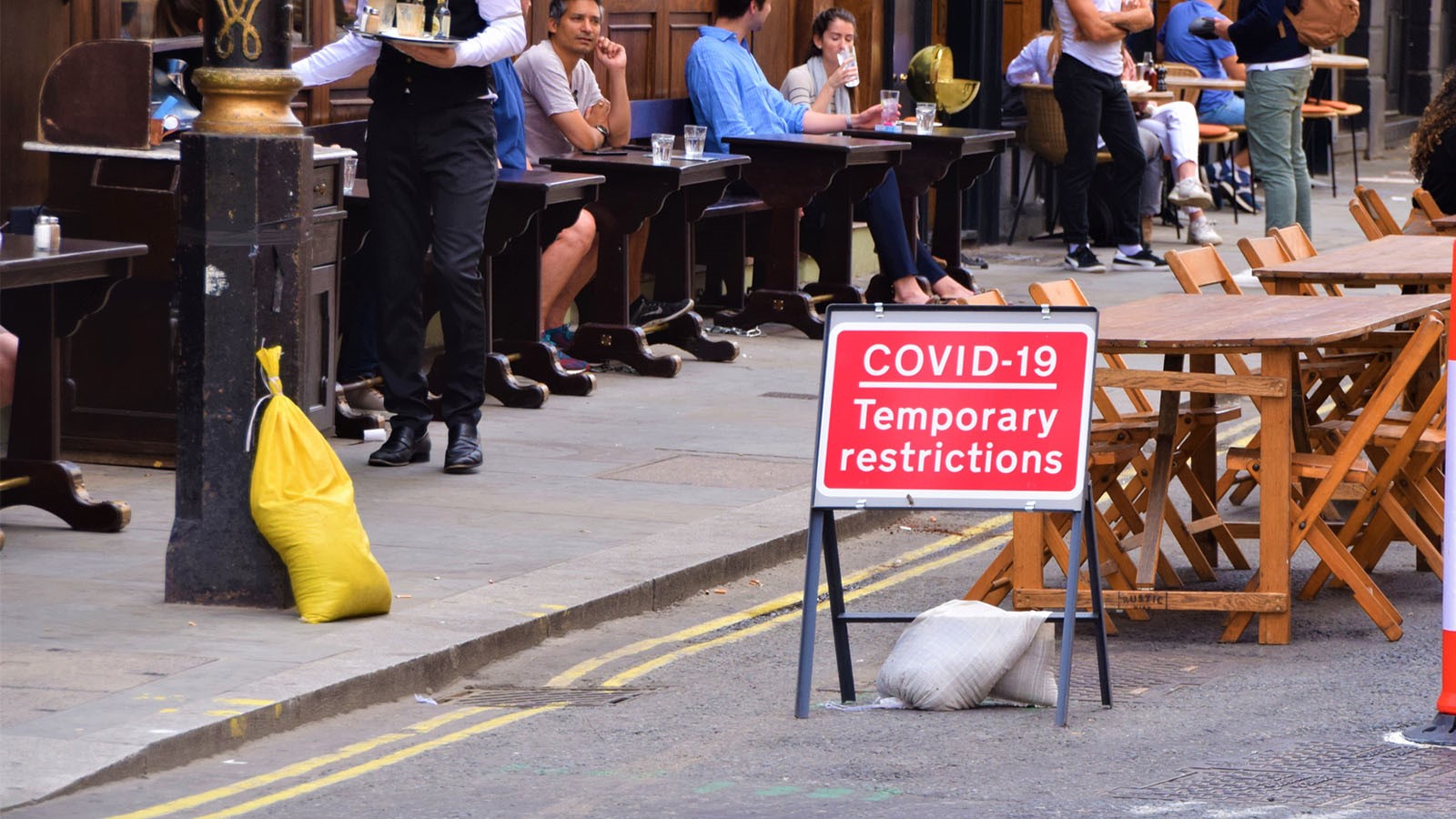From 14 October England is split into three COVID-19 alert levels - 'medium', 'high' and 'very high' – which will be implemented depending on local infection rates. You can find the coronavirus restrictions in your local area on the government website.
The medium alert level – which will cover most of the country – consists of the current national measures, which came into force on 25 September. This includes the rule of six and the closure of hospitality at 10pm.
The high alert level reflects many current local interventions, but there is now consistency across the country. This primarily aims to reduce household to household transmission by preventing all mixing between households or support bubbles indoors. The rule of six applies in outdoor spaces, including private gardens.
Most areas which are already subject to local restrictions automatically move into the high alert level.
The very high alert level applies where transmission rates are causing the greatest concern, based on an assessment of all the available data and the local situation.
Can I still work?
None of the above restrictions should impact on therapists meeting clients face to face, where the appropriate mitigating measures are in place, except where they or you might need to travel in or out of an area in the very high risk tier. If you do so, you or your client could be breaking the law and liable for a fine.
I work from a home office in a high tier area. Can I still meet clients?
Yes, if you follow the appropriate guidance to ensure your workplace is COVID-secure. Ultimately the decision to continue working face to face, or in close contact with others, is one you need to make, see our guidance for more information.
What should I do if my area is in lockdown?
Follow the advice and guidance appropriate to your local area. In England this would come from your local council, depending on the particular circumstances.
In Scotland, Northern Ireland and Wales, Public Health Authorities (PHAs) will issue guidance as and when this becomes necessary.
What has been said about the rest of the UK?
For most it will still be possible to work within the new, stricter, measures announced, as these mainly apply to social gatherings or schools. However, we urge members to follow any advice published by your local public health authorities and pay particular attention to any rules on travelling in and out of affected areas.
Northern Ireland
A range of stricter measures come into force from Friday 16th October, including:
- schools to close for two weeks, including the half-term holiday, until Monday 2 November, when their closure will be reviewed
- closure of the hospitality sector, apart from deliveries and takeaways
- close-contact services to close - apart from those meeting essential health needs
- current restrictions on household mixing are expected to remain as they are, meaning no mixing of households in private homes - with exceptions including those joined in social bubbles - and gatherings in gardens limited to six people from no more than two households
- further guidance is expected advising against unnecessary travel, with some areas operating restrictions
Scotland
Current guidelines:
- people in all areas of Scotland should not meet with people from other households in indoor household settings
- members of different households can continue to meet outdoors, including in gardens, and in hospitality settings, although a 10pm curfew applies to hospitality settings applies and groups must be no larger than six people from two different households
- the imposition of a circuit breaker lockdown in the October half term is being kept under review. This is a short but extreme shutdown designed to have a sharp impact on breaking the chain of transmission
Wales
Current guidelines:
- people should not meet indoors, apart from extended households, and should not enter or leave their regions without a 'reasonable' excuse, such as travel for work or education
- people must work from home whenever possible and restrictions have been tightened across a number of areas
- extended households have been temporarily suspended
- from 14 October the Welsh Government is preparing to prevent people who live in areas of the UK with high levels of coronavirus from travelling to Wales
Related links

Coronavirus (COVID-19)
Guidance and resources for members

Workforce
In the context of a challenging employment market, driving growth in paid opportunities and bringing employers closer to our professions is a key priority for BACP.

Sharing your experiences
Marking one year since the start of lockdown, we’re sharing your blogs about the impact the coronavirus pandemic has had on you, your practice and your clients
